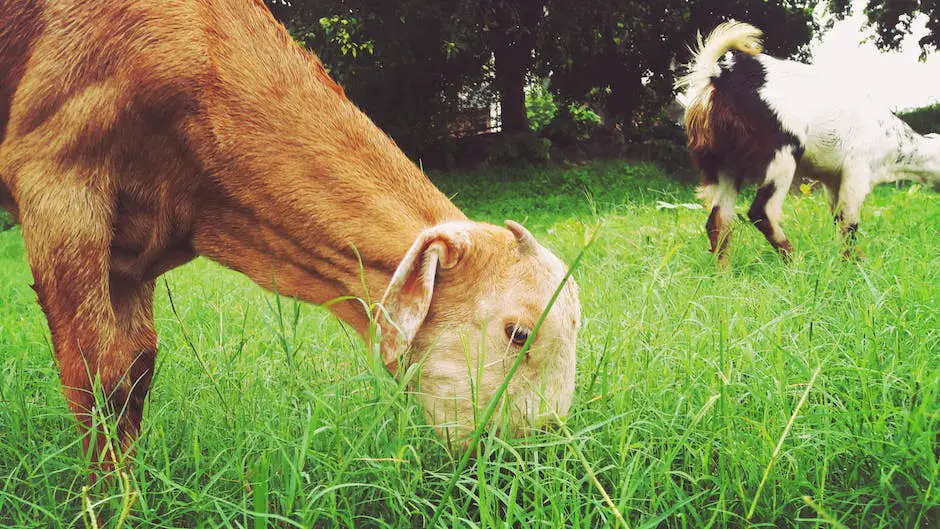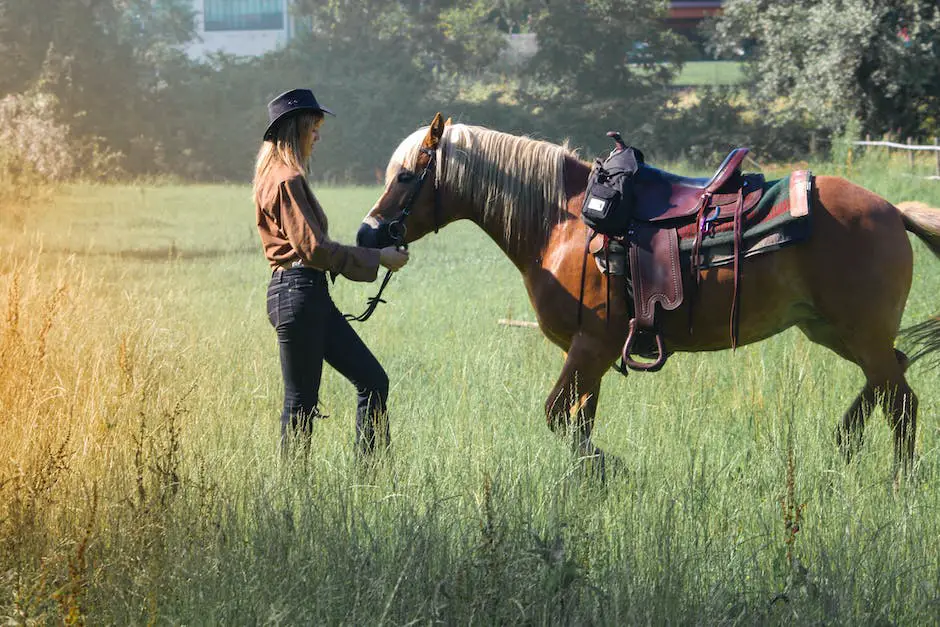The bucolic landscapes of Switzerland evoke images of tradition, precision, and a steadfast commitment to quality that extends well beyond the renown of its timepieces and chocolate. The unsung heroes of this narrative are the robust and diverse livestock that graze upon its verdant pastures. This essay embarks on a journey into the heart of Swiss livestock breeding—a journey with its beginnings nestled deep in Switzerland’s agricultural heritage. We will explore how centuries-old traditions and meticulous selective breeding have culminated in a nation celebrated not just for its scenic beauty, but for its exemplary breeds, such as the versatile Simmental, the resilient Brown Swiss cattle, and the noble Swiss Warmblood horse. These breeds, shaped by the Swiss ethos of resilience, productivity, and efficiency, stand as living testaments to the nation’s legacy in the global breeding arena.
Table of Contents (Horspedia)
History and Significance of Swiss Livestock Breeding
Swiss Agricultural Heritage: Pioneering Modern Livestock Breeding Practices
Abstract:
Swiss agriculture, with its rich heritage and innovative approach, has profoundly influenced contemporary livestock breeding strategies. This article delves into the origins and impacts of Swiss agricultural practices on the genetic refinement of modern livestock species, focusing on cattle, one of Switzerland’s most iconic contributions to global agriculture.
Introduction:
Switzerland, known for its verdant pastures and meticulous approach to farming, has played a pivotal role in shaping the principles and methodologies of modern livestock breeding. The Swiss agricultural heritage, characterized by an amalgamation of tradition and technology, has its origins deeply rooted in a pastoral culture that dates back centuries.
Selective Breeding and Genetic Innovation:
Swiss farmers have long engaged in selective breeding, a cornerstone practice that has refined livestock phenotypes to optimize productivity and health. The Brown Swiss cattle, renowned for their hardiness and high-quality milk production, emerged from the alpine regions, epitomizing the success of such selective breeding endeavors.
Preservation of Biodiversity and Sustainable Practices:
Mindful of the ecological ramifications, Swiss agriculturalists have consistently championed biodiversity. By maintaining a panoply of indigenous breeds, they have ensured genetic diversity, which is key to addressing the challenges posed by a changing climate and emerging diseases. Such diversity also fosters sustainable agricultural ecosystems, a testament to the Swiss ethos of harmony with nature.
Advancements in Molecular Genetics:
Switzerland’s dedication to agricultural science has yielded significant contributions to molecular genetics, which today inform breeding decisions through genomic selection. This scientific approach has enabled precise identification of beneficial traits and superior genetic lines, vastly improving livestock quality and efficiency.
Education and Policy Implications:
Switzerland’s agricultural policies reflect a commitment to education and training for breeders. By integrating scientific understanding with policy measures, Switzerland has bolstered the international standards of livestock breeding. These frameworks support breeders in producing livestock that not only thrive in local conditions but also contribute positively to the global food supply.
Conclusion:
The legacy of Swiss agricultural heritage has been immortal with its indelible mark left upon modern livestock breeding. The principles of selective breeding, biodiversity conservation, respect for ecology, and scientific innovation are enshrined in the very fabric of Swiss agriculture. As the world grapples with a burgeoning population and environmental pressures, the Swiss example offers a blueprint for developing livestock breeding programs that are sustainable, ethical, and scientifically informed. Through continuous research and adherence to time-honored traditions, Swiss agriculture will undoubtedly continue to shape the future of global livestock breeding.

Characteristics of Swiss Breeds
Distinctive Genetic Markers of Swiss Livestock Breeds
In the domain of agricultural genetics, the distinctive traits of Swiss livestock breeds stand as a paradigm of meticulous selection and breeding for optimal characteristics suited to the unique Swiss topography and climatic conditions. This pursuit of excellence has often centered around two principal objectives: enhancing the viability of these breeds in the specific Swiss environment and ensuring that their productivity aligns with the demands of Swiss dairy and meat industries.
Among the traits that set Swiss breeds apart, one may observe a pronounced robustness and resilience within these animals. This robustness is ostensibly a genetic response; a suite of alleles has been selected over time to confer a distinct advantage in traversing the steep Alpine terrains and enduring the often capricious mountain weather. The Swiss Braunvieh cattle, for example, exhibit muscular development, strong limbs, and a unique hoof structure. These are cardinal traits that afford the breed an ability to adeptly navigate the alpine environments, an evolutionary advantage that is arguably less pronounced in lowland breeds.
Genetic scrutiny also reveals that Swiss livestock breeds frequently exhibit advantageous lactation profiles. This is particularly noteworthy in Swiss dairy cattle, such as the Brown Swiss and Simmental, which are renowned not only for substantial milk yield but also for the superior quality of milk rich in caseins. Underlying this trait are polymorphisms within the genes encoding milk proteins. Research has illuminated the existence of a high prevalence of specific alleles that influence both quantity and the constituents of the milk, which directly correlates with the dairy products’ excellence that Switzerland is renowned for globally.
Furthermore, adaptive thermoregulatory genes play a significant role in distinguishing Swiss breeds. These genetic adaptations enable the animals to maintain homeostasis despite external temperature fluctuations—a vital trait for survival in the altitudinal climes where temperatures can vary dramatically between seasons.
The Swiss Tux-Zillertal and the Swiss Original Braunvieh cattle breeds, for example, harbor a genetic constitution that enables efficient thermal regulation, thus facilitating optimal performance and health under potentially stressful environmental conditions.
Upon examining Swiss breeds’ resistance to certain diseases, one finds that centuries of selective breeding have culminated in an impressive genetic arsenal against various afflictions that commonly affect livestock. This is a testament to the deliberate and diligent efforts within Swiss agricultural practices to curtail genetic bottlenecks while ensuring the robustness of genetic lines. For instance, a noteworthy health trait among Swiss breeds is their relative resilience against bovine spongiform encephalopathy (BSE). This resilience stems from specific genotype frequencies that render these populations at a lower risk, bolstering the Swiss animal genetics paradigm as a beacon of preemptive health management.
It is self-evident that the amalgamation of these genetic traits, honed by the meticulous and far-sighted Swiss approach to livestock breeding, exemplifies the potent synergy between traditional knowledge and contemporary genetic science. These breed-specific genetic traits reinforce the reputation of Swiss livestock as embodiments of resilience, productivity, and quality, thereby cementing the standing of Swiss agricultural genetics as a cornerstone of sustainable, high-precision breeding practices.

Ethical Considerations and Best Practices in Swiss Breeding
Transcending traditional techniques and embracing the frontiers of modern genetics, Swiss breeding programs are underpinned by robust ethical imperatives that ensure the welfare of the animals and the needs of future generations are met without compromise. It is within this framework that we examine the intricate balance between utilitarian demands and moral responsibility that guide the Swiss approach to livestock genetics and breeding.
Central to these ethical imperatives is the overreaching principle of “Tierwohl,” a German term that encapsulates animal welfare and well-being. This discerning approach advocates for the intrinsic value of animals and mandates considerations of their health, comfort, and natural behavior in breeding decisions. In practice, this translates into stringent regulations against practices that may lead to undue stress or suffering. For instance, the Swiss animal protection law restricts certain modifications such as dehorning, while it also establishes minimum space requirements that exceed those found in many other nations.
The Swiss commitment to ethically sound breeding programs extends towards the conscientious management of genetic resources. This is particularly evident in the safeguarding of native breeds, which are not only valued for their cultural significance but also for their unique genetic traits that confer adaptability to local environments. The approaches are thus characterized by a long-term vision, with proactive conservation strategies designed to maintain genetic diversity. This includes the formation of gene banks and the implementation of meticulous breeding records to track and foster genetic variability within the populations.
Equally, the Swiss ethos in breeding practices is steeped in the principle of prudence. Careful consideration is given to the potential repercussions of genetic manipulation on the health of animals and the ecosphere. A case in point is the restraint shown concerning transgenic modifications; in contrast to more cavalier global undertakings, Swiss programs tend towards caution, with legal provisions that ban genetically modified organisms (GMOs) in agriculture, reflecting public sentiment and ethical considerations rather than solely scientific or economic calculation.
Moreover, the intersection of animal ethics with environmental stewardship forms another cornerstone of Swiss breeding directives. An emphasis on ecological compatibility demands that breeding programs not only evaluate genetic progress but also consider the ecological footprint of livestock. This multidimensional approach steers the breeding of animals toward a synergy with sustainable land management, a critical aspect given the delicate Alpine ecosystems.
In alignment with these imperatives, the issue of antimicrobial resistance poses a unique ethical challenge, addressing which Swiss breeding programs prioritize the propagation of disease-resilient breeds over the reliance on antibiotics. Such judicious breeding choices are aligned with public health interests and embody a preventative strategy rather than resorting to pharmacological interventions.
Above all, transparency and accountability stand as fundamental ethical commitments in the Swiss breeding paradigm. Through the incorporation of rigorous scientific methods and open communication with the public, Swiss breeding programs foster trust and informed discourse. The collaboration between scientists, breeders, animal welfare groups, and the broader public represent a participatory model that ensures ethical considerations are woven into the fabric of Swiss breeding endeavors.
In summation, the ethical imperatives guiding Swiss breeding programs exemplify a harmonious blend of respect for animal welfare, dedication to preserving genetic diversity, an abiding commitment to environmental health, and a conscientious recognition of the interconnectedness of ecological systems. The Swiss paradigm, thus, serves not simply as a series of guidelines but as a sophisticated ethical compass pointing toward a future where agriculture and animal breeding exist in respectful coexistence with nature and society.

Future Outlook and Research in Swiss Livestock Breeding
Emerging Trends in Swiss Livestock Breeding: A Synthesis of Conservation and Innovation
In the progressive field of Swiss livestock breeding, the confluence of conservation and technological innovation continues to drive research towards unprecedented horizons. Recognizing that livestock is not merely an economic asset but equally a part of the agroecosystems, the latest endeavors have underscored the importance of environmental integration into breeding practices. Hence, one emerging area of rigorous academic pursuit involves the assessment of livestock’s environmental footprint and the development of breeds with minimized ecological impacts.
The adaptation of genome editing techniques, such as CRISPR/Cas9, stands at the forefront of this transformative journey. Despite its infancy in mainstream livestock breeding, genome editing opens avenues for precision in developing breeds that can thrive under harsh environmental conditions while mitigating pressures on ecological systems. By harnessing the power of these technologies, researchers aim to enhance feed efficiency ratios, reduce methane emissions from ruminants, and improve manure composition to lower the environmental impact of livestock farming.
Another burgeoning area of investigation focuses on the integration of livestock behavior and welfare into breeding objectives. The realization that animal temperament and stress-coping abilities markedly influence overall health has given rise to the exploration of behavioral genetics. By utilizing a multifaceted assessment of behavior, breeders can promote well-being and productivity simultaneously, leading to livestock that exhibit docility, sociability, and adaptive responses to management interventions.
Moreover, the precision livestock farming movement, leveraging sensor technology and big data analytics, is redefining research in Swiss breeding programs. Real-time monitoring of animal health status and the linkage of physiological and behavioral data to genetic information helps to create more responsive and individualized breeding strategies. This trend capitalizes on the digital transformation to optimize breeding decisions in consonance with animal needs and operational efficiencies.
Supplementing these technical advances, there is a burgeoning discourse centered around the collaboration between farmers and researchers in breeding program design and implementation. Participatory breeding, already earning recognition in crop research, is gradually permeating animal breeding. Such collaborative efforts strive to tailor breeding objectives to align with grassroots needs and facilitate knowledge exchange, consequently promoting breeds that are attuned to localized farming conditions and societal expectations.
Central to Swiss breeding is the underpinning commitment to multifactorial optimization—broaching yield and productivity without eclipsing animal welfare, genetic diversity, and ecosystem health. Thus, the trajectory of Swiss livestock breeding research remains a pioneering testament to the harmonization of legacy and progress. By persistently advancing the scientific frontier while maintaining deep respect for nature and ethical standards, Swiss agriculture continues to sculpt a global narrative of sustainable innovation. The emergent trends discussed here epitomize this narrative, mark the evolution of the field, and, notably, offer a parallel for similar endeavors worldwide.

The horizon of Swiss livestock breeding stretches far beyond the Alpine meadows and continues to rise with the tide of innovation and ethical stewardship. As we reflect upon the insights gained from delving into the history, characteristics, and ethical practices that shape this rich tapestry, we recognize the pivotal role that Switzerland plays in steering the future of global livestock breeding. With each stride towards integrating cutting-edge research, embracing sustainable farming technologies, and navigating the challenges posed by a changing climate, Switzerland reaffirms its commitment to excellence and sustainability. As the industry evolves, so too will the steadfast Swiss dedication to fostering an ethical, productive, and forward-thinking breeding culture, ensuring that Swiss breeds will continue to thrive and hold their esteemed place in the annals of livestock breeding.

